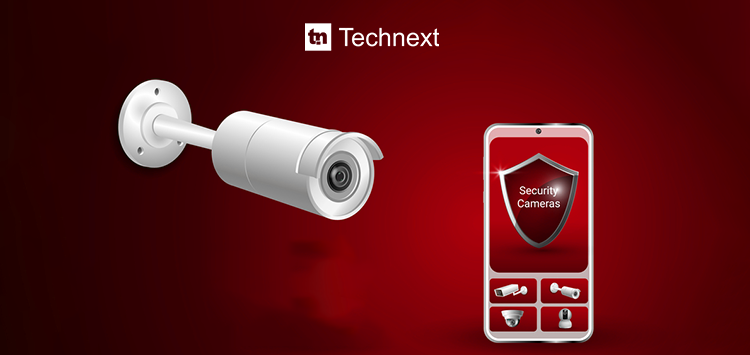Insecurity, indeed, ritual killings in Nigeria has become a bigger issue than any society can tolerate. Almost every Nigerian has one story or another to tell. Therefore, the need and demand to install security cameras (CCTV) cameras should be a major conversation.
If we used Bamise Ayanwole’s alleged ritual killing as a case study, we will start an argument leaning towards the fact that a CCTV camera in the bus and others lined up on highways – with a live feed may have prevented the dastardly act and many similar cases.
Surveillance through a CCTV network, in car parks, housing estates, town centres, highways is valuable. The CCTV can be used to monitor public areas to detect incidents and coordinate police investigations. CCTVs provide direct surveillance of suspected offenders and deter criminal activity.
Research has shown that people can be accurate when identifying familiar faces, even from poor quality CCTV footage. Research also suggests that circulating stills from the CCTV footage in the print media is likely to be as effective as broadcasting the CCTV footage.
Why the insistence on CCTV?
A simple search of Closed Circuit Television (CCTV) in Nigeria’ will see e-commerce sites scrambling to appear at the top of search results. The experience makes you remember the last time you entered a shoe market in Aba (Abia State, Eastern Nigeria) (if you ever visited) and got lost in the aesthetics. It just shows that CCTV is mostly a private affair in Nigeria.
Leave private institutions and houses, and take a walk to government institutions; you will wonder if they understood that CCTV installation is a no-brainer. Maybe if you knew that most government agencies still operate like in the Middle Ages, your questions will be answered.
In February 2021, the Minister of Police Affairs, Muhammad Dingyadi announced that the Nigerian government will install CCTV cameras on all major highways across the country. According to him, this is part of measures to curb the increasing spate of kidnapping across the country.
Dingyadi, speaking during an interview on Channels Television said President Muhammadu Buhari approved the project and the government has entered into an agreement with NPS Technology Company to re-fix the abandoned CCTV project.
“We are moving forward like you are aware, the 470 million CCTV project that has been abandoned. Mr President has now given us the go-ahead to resuscitate the project and we have already entered into a concession agreement with NPS technologies. They are there trying to re-fix the entire system to resuscitate it.
The minister explained that the installation of CCTVs will help Nigeria solve issues of kidnapping in the country.
He added that the CCTVs will be installed in all the major highways across states.
“By the time this CCTV system is put in place, we will have a lot of technology to manage the issue of kidnapping. We will ensure that we reduce the number of kidnappings in this country,” the Minister added.
It is a whole annual cycle and we do not know how that is going to go.
Before that, in February 2020, a bill seeking to compel compulsory installation of Closed Circuit Television (CCTV) on private buildings and offices passed the second reading in the House of Representatives.
The Bill was sponsored by Awaji-Inombek Abiante, with the title: “A Bill for an Act to Make Provision for the Integration of Private Closed Circuit Television Infrastructure into the National security Network in Nigeria.”
The objective was introduced to keep the environment in check and help security agencies to solve cases of crime through a network of CCTV security infrastructure.
“Any company or organisation in Nigeria that refuses, out of neglect, to install CCTV camera within and outside its premises is liable to a fine of at least ₦500,000 or an imprisonment of six months or both. Continual refusal to install CCTV cameras shall attract a fine of at least ₦1 million or a year in imprisonment or both,” the Bill reads.
In February 2022, the Nigerian police called for legislation that would compel private citizens, including government agencies and corporate organisations, to install CCTV cameras and security sensors on their facilities.
Effort by previous Nigerian government
In an effort to emplace a robust platform in furtherance of national security, the administration of former President Olusegun Obasanjo initiated a National Public Security Communication System (NPSCS) in its second term. But, the implementation commenced under the administration of the late President Umaru Yar’Adua, which awarded the contract to a Chinese firm, ZTE Nigeria Limited in August 2010, at a cost of $470 million.
The project which was scheduled for completion in May 2011, was funded through a $600 million credit facility obtained from the Chinese EXIMBANK, and the contract was awarded under the Ministry of Police Affairs.
The pilot phase was to cover three states and the Federal Capital Territory (FCT), including Lagos and Port Harcourt.


It was later to be extended to all the 36 states of the federation with a wide scope covering the deployment of five components. These include a Video Surveillance System which is said to be less than 15 per cent of the entire project; the Global open Trunking architecture (GoTa) Communication Network; Video Conferences System; E-Policing Subsystem and the Emergency Collation Response Subsystem.
All of these, the government claimed, were aimed at ensuring a comprehensive, effective, modern and robust public security communication technology.
But, where’s the political will for continuity?
When CCTV worked…
There have been a number of cases where CCTV has helped in fishing out culprits with less rigorous investigation effort as a result. A typical example is the case of the Adamawa Senator who had visited a sex toy shop and assaulted the attendant.
Elisha Abbo, a lawmaker representing Adamawa North Senatorial at the National Assembly, was found not guilty of criminal assault. Still, CCTV footage showed that he laid his hands on the attendant, in the presence of policemen.
Citizens also observed how the CCTV cameras were removed from the Lekki toll gate following the night of the shooting, October 20, 2020. A good number of observers believe that footage from removed cameras would have been helpful in unravelling the true story of what transpired that night – possibly faces, uniforms and name tags.
The installation of CCTVs should not be an alternative conversation. Government should take intentional steps, not political promises to make it happen.
Rescue apps that may help
One of the significant lapses of the Nigerian security apparatus is the fact that Nigerians can hardly look up to them (security agents) for issues on the protection of lives and property.


As of 2016, the Nigerian police force has a staff strength of 371,800, and there are no indications that the number has increased. So, it’s one policeman to about 528 Nigerians, not leaving out the fact many of these policemen are attached to influential Nigerians and political officeholders.
However, thanks to technology, there are mobile applications that may help citizens in times of danger. Apps that could alert security agents with the hope of a quick response. These will be at least complementary to the present structures.
We listed some of them:
Rescue Me
The NPF Rescue Me app is designed to handle emergencies. It collects the information needed by the Police command and control unit to know about you, your situation, and your location before dispatching aid your way.
The app allows users to share their personal information such as name, medical information, address, and location with the operators at the Police command and control unit of the Nigerian Police Force who then send out the needed help so that absolute safety for you, your family and property is ensured.
EMRO Security App
The armed response option on the EMRO app comprises a team of drivers, commanders and mobile policemen who will respond to security emergencies upon the push of the in-app panic button or dialling the emergency number; 0700 000 1190.
Immediately a subscriber panics, the contact centre will call and deploy a team to rescue the subscribers even when they are unable to get through to the subscriber to confirm the panic. The location of the subscriber will be determined through our in-app cellular network mapping system.
Sety app
When in danger, simply open the Sety app, hold down the SOS button, and help will be on the way in minutes. Tools such as incident and security alerts, fake calls are available to keep you safe.
You can create a circle of friends and family who can help in dangerous situations. With the app, you can receive incidents and security alerts in real-time, and avoid hotspots, and danger zones.
SOS Nigeria
SOS Nigeria is an emergency app for Nigerians that contains the numbers of emergency services in Nigeria like firefighters, police, road safety, etc.
It enables a user to send distress alerts with location information to the appropriate authority at the touch of a button. With SOS Nigeria, security threats, fire incidences, road accidents, medical emergencies can be prevented.
In sum…
More than ever before, a lot of Nigerians have had to take their fates into their own hands when security is the question; and technology and tech solutions offer them the easiest and most reliable way to protect themselves.
It is hoped that the existing security architecture: security personnel, response squads and indeed the judiciary will make the efforts fruitful.





